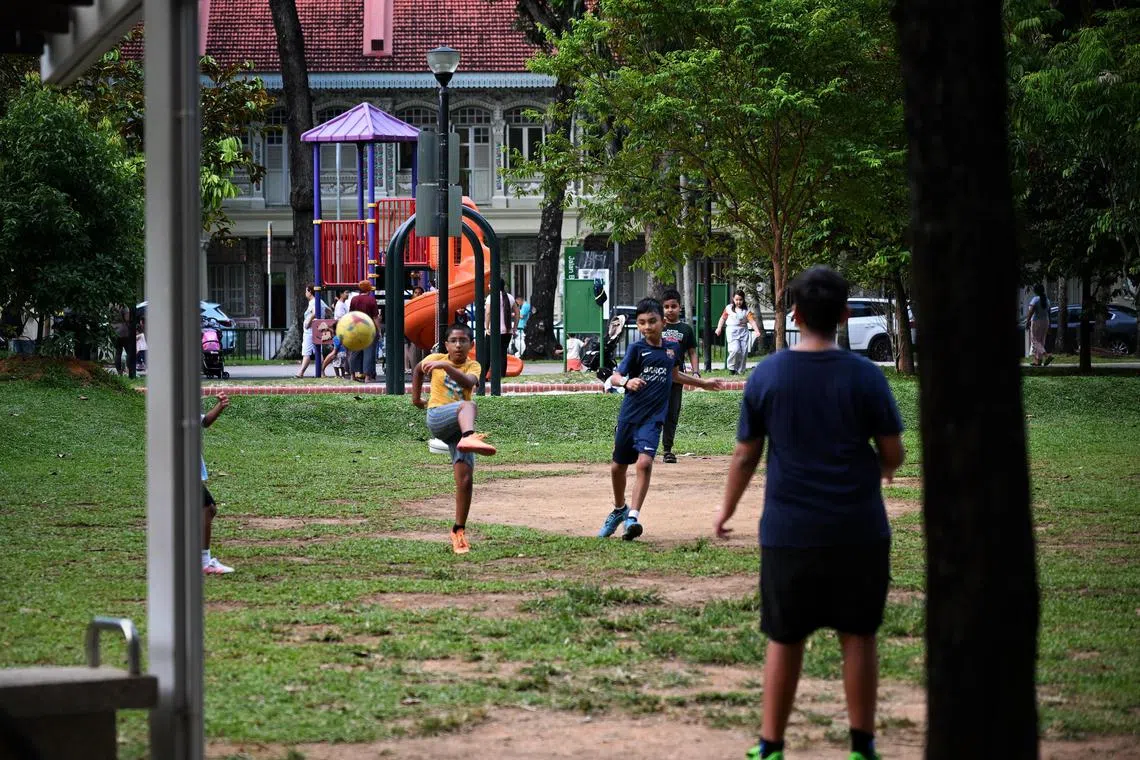September school break: How to help your children manage exam stress
Sign up now: Get tips on how to help your child succeed

Engaging in exercise can alleviate stress, refresh the mind and enhance learning.
ST PHOTO: KUA CHEE SIONG
Follow topic:
SINGAPORE – Exam periods are often stressful for tweens and teens, and more so when they involve those at national level like the Primary School Leaving Examination and O levels.
Ideally, students should not have to cram for exams by studying long hours over a short period, or sacrifice playtime and hobbies in the weeks leading up to them.
This is possible when they consistently revise in incremental doses throughout the semester, says Associate Professor Sirene Lim, dean of the S R Nathan School of Human Development at the Singapore University of Social Sciences.
If you are seeking ways to support your child, Ms Laura Oh, founder of House of Hows education centre, advises that managing exam stress extends far beyond academic preparation.
Ms Oh, who has more than a decade of experience tutoring primary and secondary school students, champions a holistic approach, recognising that a child’s physical and mental well-being will help him or her perform under pressure.
Prioritise nutrition
Provide your child with nutrient-rich meals
Ensure adequate sleep
Ms Oh stresses the importance of an early bedtime, recommending her students sleep by 9pm. Sleep is crucial for brain recovery and growth, as numerous research studies have shown.
Encourage physical activities
Exercise is an effective stress reliever. Even simple activities like walks and playground time can refresh the mind.

Ms Laura Oh, founder of the House of Hows education centre, took her students on an outing to the TreeTop Walk.
PHOTO: HOUSE OF HOWS
“When children eat, rest and play well, their minds are sharper and their stress levels drop naturally,” says Ms Oh, who organised a class trip to the TreeTop Walk recently. “Exams then become less of a pressure and more of a chance to shine.”
Teach calming skills
Ms Nur Hafizah Nur Hamidy, senior play specialist at Playeum, recommends that parents guide their children in practising the 5-4-3-2-1 technique, a widely recognised and classic mindfulness exercise. This involves identifying five things they can see, four they can touch, three they can hear, two they can smell and one they can taste.
This simple method can help children manage overwhelming feelings before exams. It guides them to shift their attention from anxious thoughts to the present moment by engaging their five senses, one at a time.


